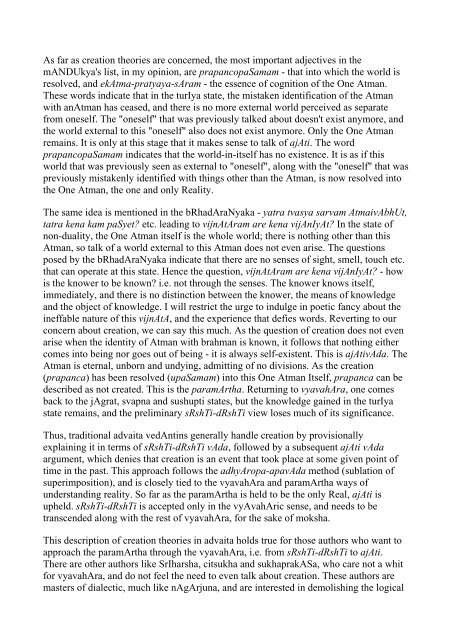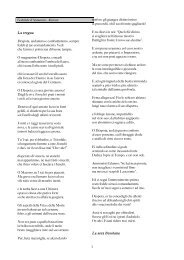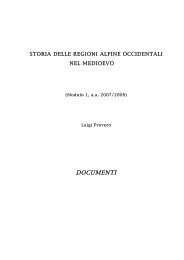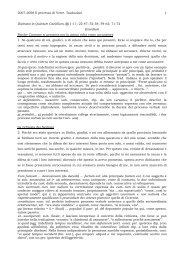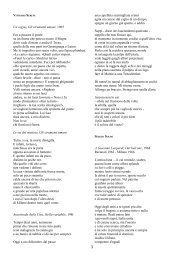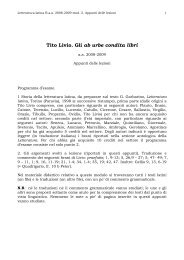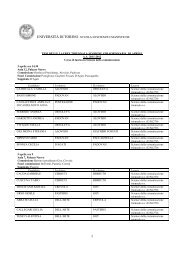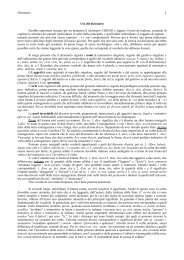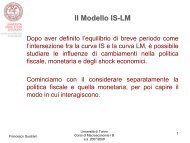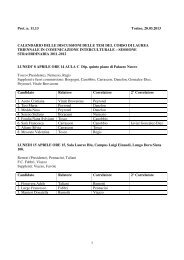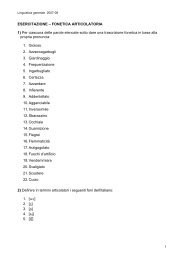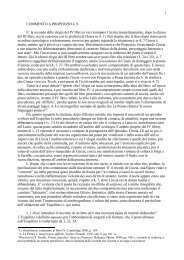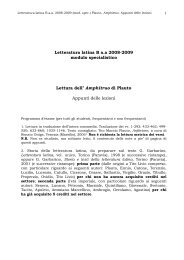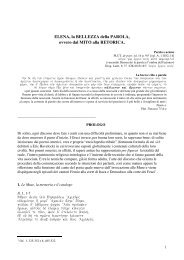ajAti vAda
ajAti vAda
ajAti vAda
You also want an ePaper? Increase the reach of your titles
YUMPU automatically turns print PDFs into web optimized ePapers that Google loves.
As far as creation theories are concerned, the most important adjectives in the<br />
mANDUkya's list, in my opinion, are prapancopaSamam - that into which the world is<br />
resolved, and ekAtma-pratyaya-sAram - the essence of cognition of the One Atman.<br />
These words indicate that in the turIya state, the mistaken identification of the Atman<br />
with anAtman has ceased, and there is no more external world perceived as separate<br />
from oneself. The "oneself" that was previously talked about doesn't exist anymore, and<br />
the world external to this "oneself" also does not exist anymore. Only the One Atman<br />
remains. It is only at this stage that it makes sense to talk of <strong>ajAti</strong>. The word<br />
prapancopaSamam indicates that the world-in-itself has no existence. It is as if this<br />
world that was previously seen as external to "oneself", along with the "oneself" that was<br />
previously mistakenly identified with things other than the Atman, is now resolved into<br />
the One Atman, the one and only Reality.<br />
The same idea is mentioned in the bRhadAraNyaka - yatra tvasya sarvam AtmaivAbhUt,<br />
tatra kena kam paSyet? etc. leading to vijnAtAram are kena vijAnIyAt? In the state of<br />
non-duality, the One Atman itself is the whole world; there is nothing other than this<br />
Atman, so talk of a world external to this Atman does not even arise. The questions<br />
posed by the bRhadAraNyaka indicate that there are no senses of sight, smell, touch etc.<br />
that can operate at this state. Hence the question, vijnAtAram are kena vijAnIyAt? - how<br />
is the knower to be known? i.e. not through the senses. The knower knows itself,<br />
immediately, and there is no distinction between the knower, the means of knowledge<br />
and the object of knowledge. I will restrict the urge to indulge in poetic fancy about the<br />
ineffable nature of this vijnAtA, and the experience that defies words. Reverting to our<br />
concern about creation, we can say this much. As the question of creation does not even<br />
arise when the identity of Atman with brahman is known, it follows that nothing either<br />
comes into being nor goes out of being - it is always self-existent. This is <strong>ajAti</strong><strong>vAda</strong>. The<br />
Atman is eternal, unborn and undying, admitting of no divisions. As the creation<br />
(prapanca) has been resolved (upaSamam) into this One Atman Itself, prapanca can be<br />
described as not created. This is the paramArtha. Returning to vyavahAra, one comes<br />
back to the jAgrat, svapna and sushupti states, but the knowledge gained in the turIya<br />
state remains, and the preliminary sRshTi-dRshTi view loses much of its significance.<br />
Thus, traditional advaita vedAntins generally handle creation by provisionally<br />
explaining it in terms of sRshTi-dRshTi <strong>vAda</strong>, followed by a subsequent <strong>ajAti</strong> <strong>vAda</strong><br />
argument, which denies that creation is an event that took place at some given point of<br />
time in the past. This approach follows the adhyAropa-apa<strong>vAda</strong> method (sublation of<br />
superimposition), and is closely tied to the vyavahAra and paramArtha ways of<br />
understanding reality. So far as the paramArtha is held to be the only Real, <strong>ajAti</strong> is<br />
upheld. sRshTi-dRshTi is accepted only in the vyAvahAric sense, and needs to be<br />
transcended along with the rest of vyavahAra, for the sake of moksha.<br />
This description of creation theories in advaita holds true for those authors who want to<br />
approach the paramArtha through the vyavahAra, i.e. from sRshTi-dRshTi to <strong>ajAti</strong>.<br />
There are other authors like SrIharsha, citsukha and sukhaprakASa, who care not a whit<br />
for vyavahAra, and do not feel the need to even talk about creation. These authors are<br />
masters of dialectic, much like nAgArjuna, and are interested in demolishing the logical


